‘Unparalleled disruption’: UK’s NHS warns 250,000 operations postponed due to doctors' strike
Up to a quarter of a million medical operations and appointments could be postponed due to next week’s four-day strike planned by tens of thousands of doctors in England, while putting seriously ill patients at greater risk, the NHS Confederation has warned.
“We are very concerned about the potential severity of impact on patients and services across the country,” Stephen Powis, national medical director for NHS England, said in a statement, highlighting that hospitals face almost 100 hours without as little as half the NHS medical workforce.
Junior medics are set to strike for four days starting on Tuesday, April 11. The strike comes at a particularly busy time for the NHS, with demand for services expected to be high after the Easter bank holiday weekend, and many other NHS staff on annual leave during the school holidays.
Dr. Layla McCay, policy director at the NHS Confederation, said the impact is expected to be far greater than a three-day walkout last month by doctors early in their career that led to 175,000 appointments and procedures being postponed.
McCay said the disruption could last up to 10 or 11 days, with the strike running between the Easter bank holiday and another weekend.
“The impact is going to be so significant that this one is likely to have impact on patient safety, and that is a huge concern for every healthcare leader,” she said.
Hospital bosses have said they cannot guarantee patients will be safe as managers struggle to arrange staffing during the strike, which will affect both emergency and planned care.
The British Medical Association (BMA) has also announced that it will not exempt any services but that there are plans to protect patients, which could involve pulling junior doctors off the picket line if individual hospitals report lives are in immediate danger.
Dr. Mike Greenhalgh, a deputy chair of the BMA’s junior doctors committee, has apologized to patients who had their operations or appointments canceled, and he insisted patient safety would not be put at risk. “Patient safety was maintained at the last strikes, and it will be in these strikes,” he said.
UK health secretary, Steve Barclay, had been urged to meet union representatives in an attempt to resolve the issue but the negotiations remained deadlocked last night, since the minister insisted the BMA has to call off the strike for any negotiations to take place.
“It is deeply disappointing that this industrial action has been timed by the BMA's junior doctors committee to cause maximum disruption to both patients and other NHS staff,” Barclay wrote in his article published in the Telegraph.
The junior doctors insist it is up to the health secretary, to make them a “credible” offer. Dr. Vivek Trivedi and Dr. Rob Laurenson, the co-chairs of the BMA junior doctors committee said the strikes could still be avoided if the government made a credible pay offer.
Junior doctors are asking for a 35 percent pay rise to “reverse the steep decline” they have faced after years of below-inflation pay rises. The BMA says that since 2008/9, they have had a real-terms pay cut of 26 percent, and they are now seeking “full pay restoration”.
They also want to agree on a mechanism to prevent future declines in their pay and to reform the pay review process.
The strike planned for Tuesday would be the latest in a wave of disruptive labor actions by public sector workers in the UK, demanding pay hikes to offset inflation that exceeds 10 percent.
The Passport Office staff were on strike last week, civil servants plan to strike on April 28, and the UK’s biggest teaching union, the National Education Union, is preparing for five more days of walkouts.
A cost-of-living crisis driven by sharp food and energy price increases has left the British people struggling to pay bills as union wages have fallen in real terms over the past decade.
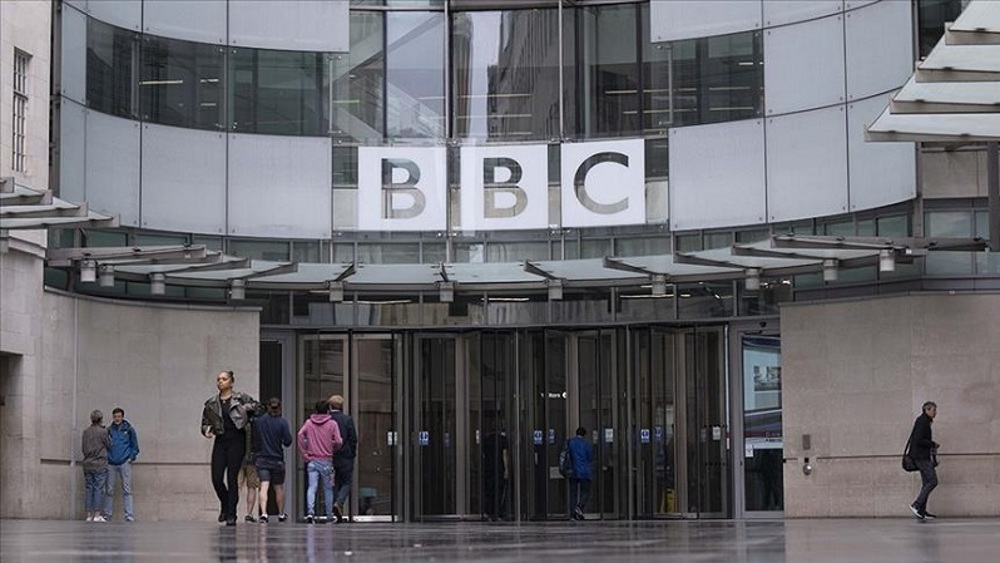
BBC pro-Israel bias in reporting Gaza genocide

London anti-racism protests
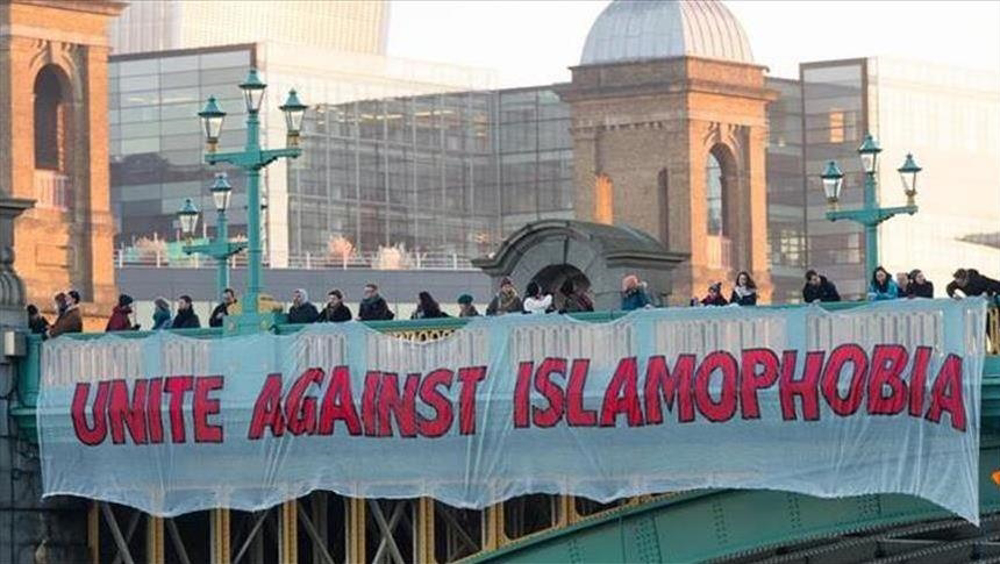
London hit by ‘shocking’ wave of Islamophobic hate crimes
US special envoy in Kiev amid war of words between Trump, Zelensky
Hamas says ready to free all Israeli captives at once in phase two of truce
Israel kills one, injures two in southern Lebanon: Media
‘Colonial powers’ have no right to determine fate of Palestine: Qalibaf
Explainer: Why are MK-84 2,000-lb bombs approved by Trump for Israel so deadly?
President Pezeshkian: Iran, Qatar opening new avenues for cooperation
VIDEO | Displaced return home despite destruction
IRGC unveils new homegrown smart missiles, drones drill


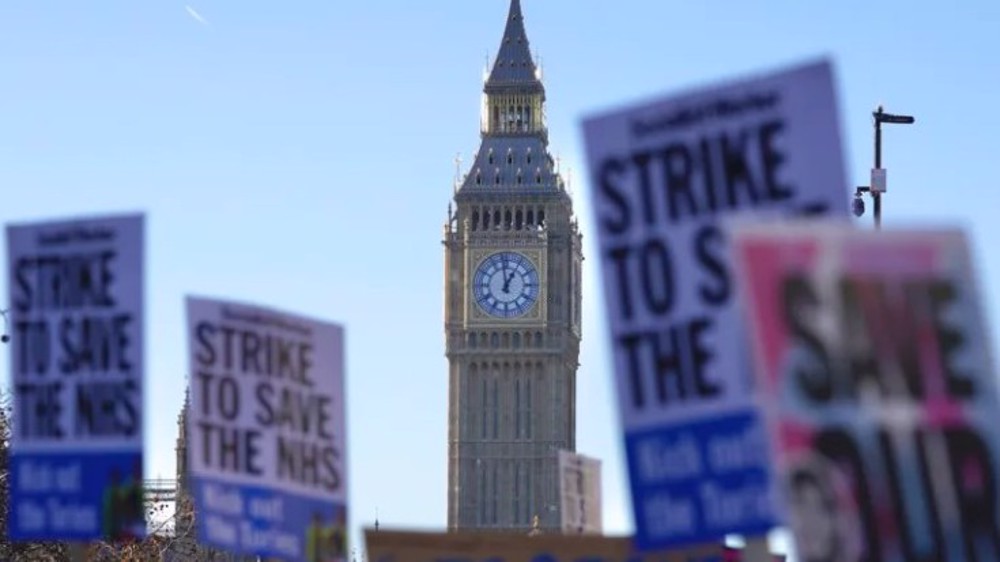
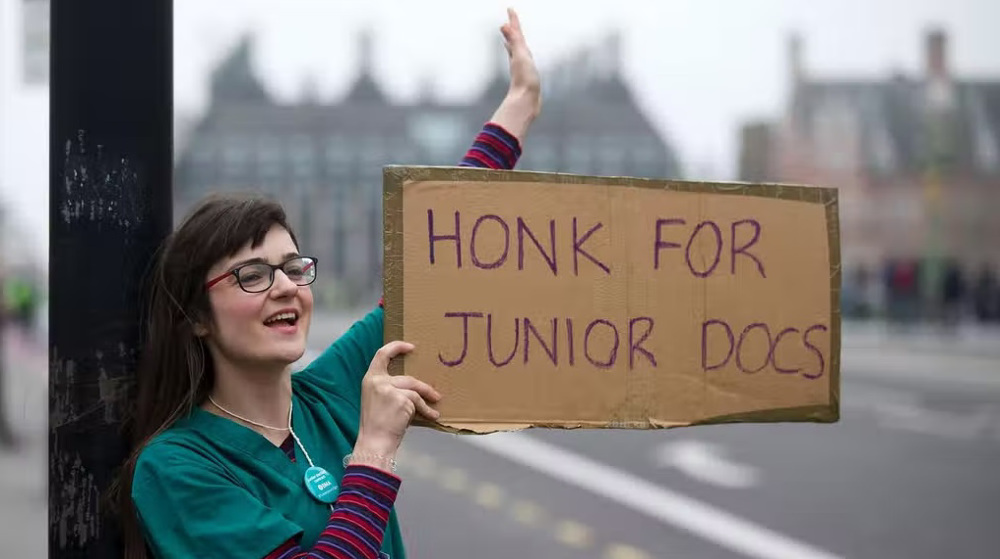
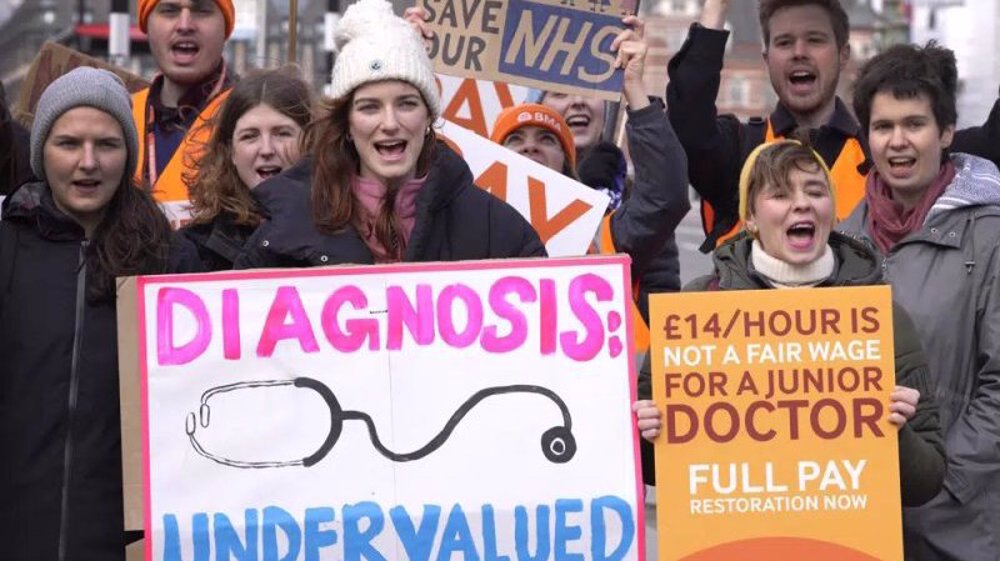





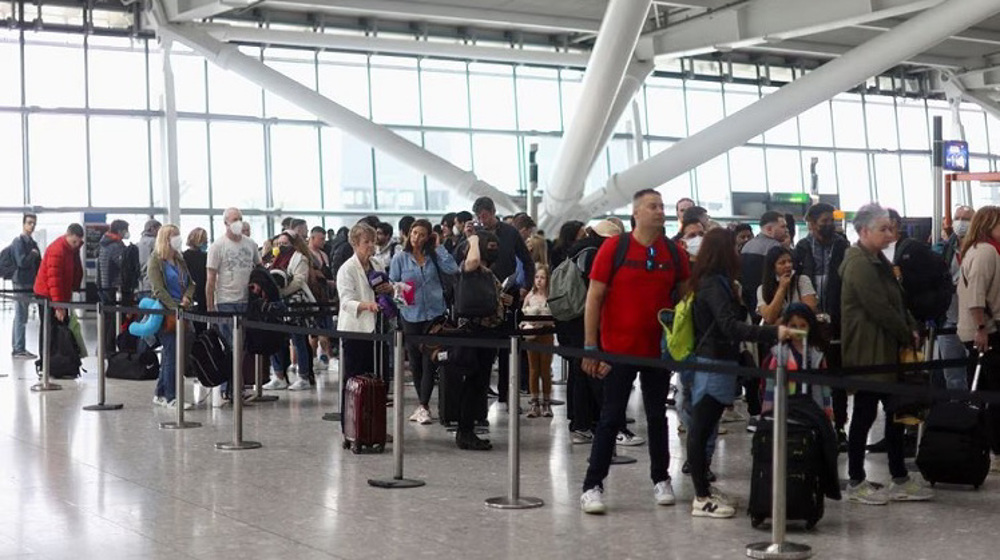
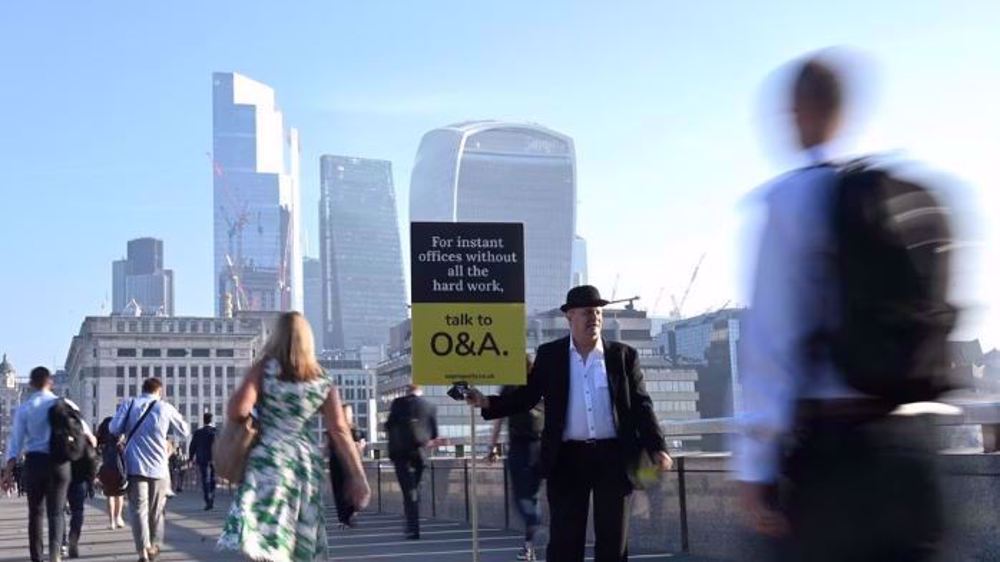

 This makes it easy to access the Press TV website
This makes it easy to access the Press TV website